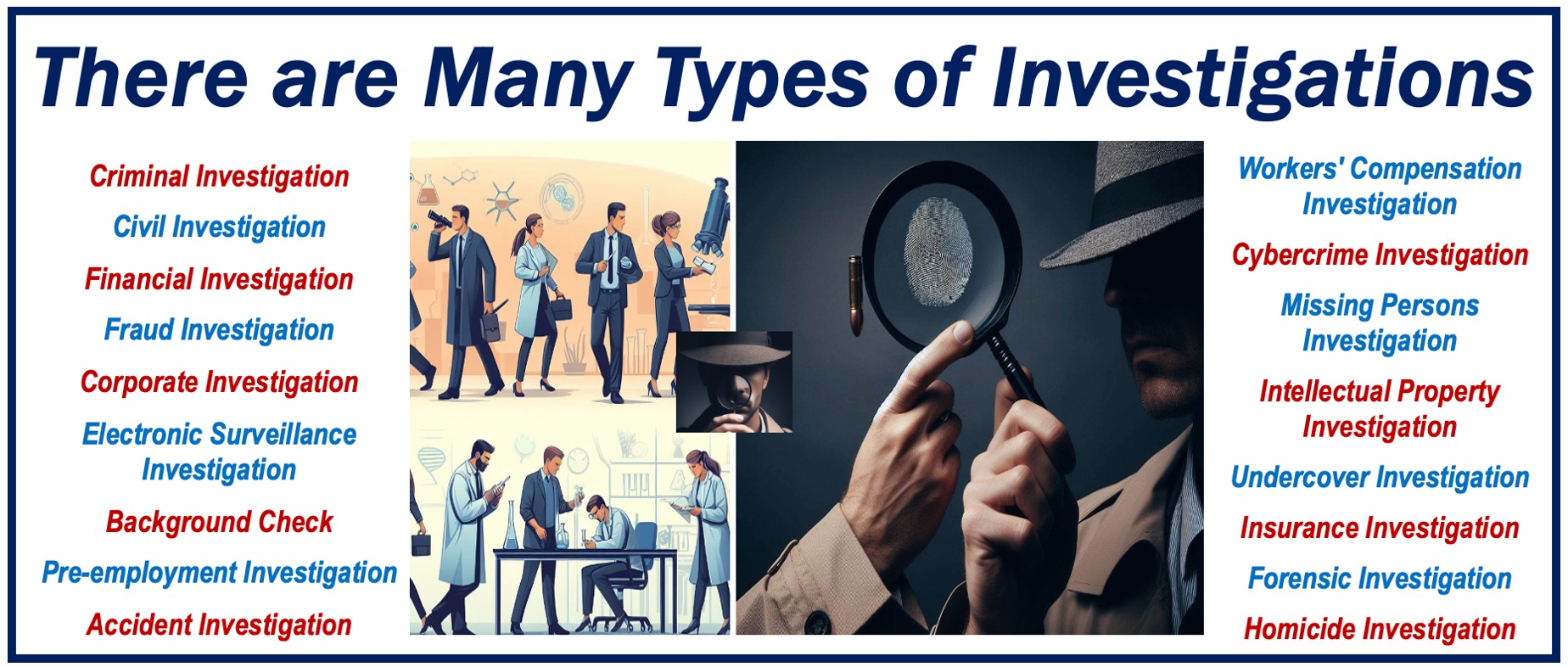What is an investigation?
An investigation is a systematic, in-depth examination to find and analyze data, facts, or proof in order to arrive at conclusions or establish truths. It includes collecting data, verifying its authenticity, and assimilating it to understand a specific action, situation, or event.
In other words, it is a detailed look into something to find out the truth. It means gathering information, checking whether it is accurate, and using it to understand a specific situation or event.
Key elements
Here are the key elements:
- Objective
Every investigation has a specific purpose or aim. This could be to solve a crime or to understand a scientific event.
- Evidence collection
This is about collecting data or materials that can provide answers.
- Analysis
Once the evidence is collected, it’s time to examine it closely.
- Conclusion
Drawing a final decision based on the evidence and its analysis.

Types of investigations
There are several types of investigations, including:
- Criminal investigation
This type of investigation is usually conducted by police and law enforcement agencies to solve crimes and bring offenders to justice.
- Scientific investigation
Scientists and researchers conduct this type of investigation to understand underlying principles, discover new knowledge, and expand current knowledge.
- Corporate investigation
Businesses may investigate matters, like potential employee misconduct, background research on a new hire, or external issues like fraud and market analysis.
- Journalistic investigation
Journalists conduct this type of investigation to understand stories, uncover facts, and sometimes shed light on hidden issues or corruption.
Importance of investigations
- Justice
A criminal investigation aims to identify the culprits, ensure they face appropriate legal consequences, and provide justice to the victims.
- Safety and security
Investigations might reveal vulnerabilities or risks, which can result in improved safety procedures.
- Knowledge advancement
Scientific research results in discoveries and breakthroughs by deepening our understanding of the world.
- Accountability
In business and government, investigators ensure transparency and accountability, holding entities accountable for their actions.
Challenges
When conducting an investigation, individuals may encounter several challenges, including:
- Misinformation
It is important to be able to tell what is real, genuine evidence and what is misleading information.
- Resource constraints
A lack of time, personnel, or the right equipment may seriously undermine an investigator’s work.
- External pressures
An investigation’s trajectory or conclusion may occasionally be influenced by corporate, social, or political influences.
Written by Nicolas Perez Diaz, October 27, 2023.

